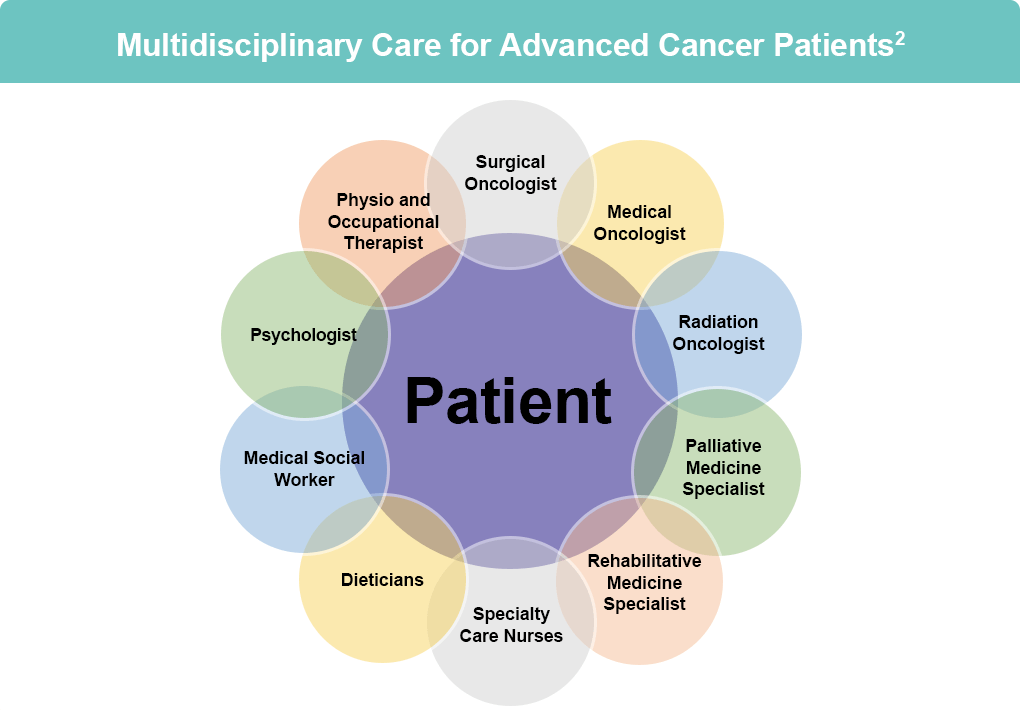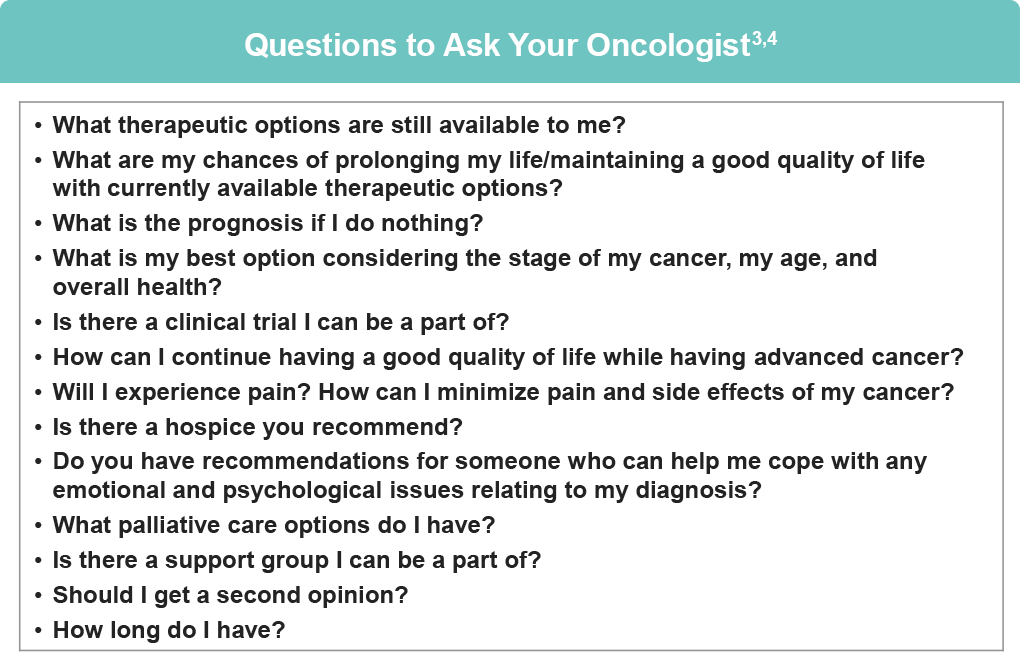Living with GEA & BTC
Living with advanced GEA and BTC can be challenging. Doctors now recognize that, in addition to disease treatment, the relief of suffering, enhancing patient quality of life, and maximizing patient survival are equally important goals. A multidisciplinary care team, engaged as early as possible, can help make the patient’s life more comfortable.1
With the availability of newer targeted treatments and with access to clinical trials, some people can expect to increase their life expectancy. Others, however, may have advanced cancer that is no longer responding to available treatments. It is important to define goals for yourself at every stage and at the same time accept that these goals may change over time.
Examples of goals could include some or all of the following:
Participating in clinical trials3-6
Early-phase clinical trials that are designed to evaluate the safety and to identify the best starting dose of a new treatment are often available to patients with advanced cancer. It is best to seek your oncologist’s help in identifying a clinical trial that may be right for you, one which you would be eligible to be a part of. For example, some trials require you to be in a certain age group or have not been treated with a particular therapy class in the past. Stay educated and find a clinical trial that is right for you.
Palliative care and hospice care
This refers to care that makes you feel better symptomatically but does not treat the cancer itself. Palliative care should be a focus for self-care right from the time of cancer diagnosis but is especially important throughout treatment and after treatment stops. It can include but is not restricted to getting symptomatic relief to side effects of cancer treatment, getting emotional/spiritual support, getting answers to any concerns/question you and your family might have about this stage of your cancer journey, financial aid, and counseling. Palliative care can help improve and maintain your quality of life as you move from day to day, which can potentially help with staying active.3,4,6
When nearing the end of life, it may be time for hospice care. This includes getting medical, psychological, and spiritual support for you and your loved ones. Hospice care includes all elements of palliative care while also providing support at the end of life. It can be offered at home and also in special nursing homes and hospitals. Choosing hospice care can ensure you have a good quality of life right to the end.3
Installing self-care strategies and non-pharma interventions
It is important to continue to take care of yourself physically and mentally during this period. Eating well and hydrating yourself, exercising, and doing things that make living meaningful to you and energize you are important, both, during treatment and after treatment has been discontinued.6
Psychosocial impact and management3,4
Advanced cancer can be an emotional rollercoaster, and you may find yourself grappling with a range of emotions, some of which include sadness/depression, grief, anger, hope, fear, guilt/regret, strength, and loneliness. Know that there is no right or wrong way to feel, and that it is normal for feelings to change on a daily or even hourly basis, with some times feeling better than others. Ensure that you have a good support system, both in the form of professionals, such as therapists and counsellors as well as family/friends.
Some things you can do to feel more in control of your situation:
References
- Engeser P, Glassman J, Leutgeb R, Szecsenyi J, Laux G. Early integration of palliative care for outpatients with advanced cancer in general practice: How is the situation? – A cohort study. Ann Palliat Med. 2021;10:2843-2848. doi:10.21037/apm-20-2377
- The SPRinT Series: Palliative Surgery & Surgical Oncology Care – Where Every Moment of Life Matters. https://www.healthxchange.sg/news/sprint-series-4-palliation
- National Cancer Institute. Advanced Cancer. https://www.cancer.gov/about-cancer/advanced-cancer
- American Cancer Society. Coping with Advanced and Metastatic Cancer. Last revised September 10, 2020. https://www.cancer.org/cancer/managing-cancer/advanced-cancer/coping.html
- NCCN Guidelines for Patients®. Esophageal Cancer (2024). https://www.nccn.org/patients/guidelines/content/PDF/esophageal-patient.pdf
- NCCN Guidelines for Patients®. Gallbladder and Bile Duct Cancers (2023). https://www.nccn.org/patients/guidelines/content/PDF/gallandbile-hp-patient.pdf
All URLs accessed April 12, 2025



